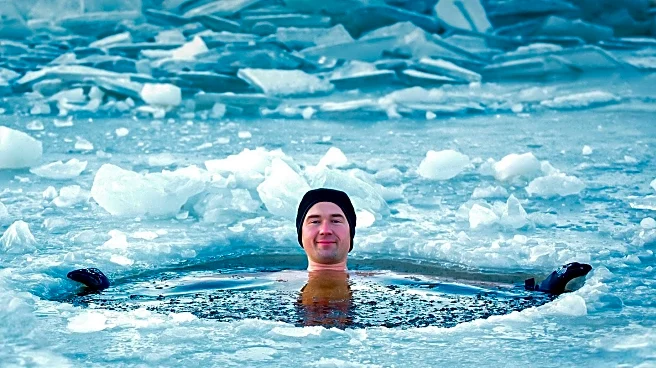What's Happening?
Recent discussions have emerged regarding the impact of cold plunges on women's health, particularly focusing on stress responses. Acupuncturist Katie Pedrick highlighted a study indicating that cold water immersion may not benefit women, as it spikes cortisol levels and stresses the body. Exercise physiologist Stacy Sims, PhD, noted that women experience a stronger stress response to cold water compared to men, suggesting warmer temperatures for cold plunges. Researchers, including Ron Clijsen, PhD, and Vanessa Wellauer, have identified physiological responses such as vasoconstriction and thermogenesis during cold plunges, which can affect heart rate and blood pressure.
Why It's Important?
The conversation around cold plunges is significant as it challenges the generalized wellness practices that may not account for gender differences. Understanding the distinct physiological responses in women can lead to more tailored health recommendations and prevent potential adverse effects. This discussion may influence public health guidelines and personal wellness routines, emphasizing the need for gender-specific research in health practices. Women who engage in cold plunges might reconsider their approach based on these findings, potentially opting for warmer temperatures to mitigate stress responses.
What's Next?
Further research is expected to explore the gender-specific effects of cold plunges, potentially leading to revised health recommendations. Health professionals may begin advocating for personalized wellness practices that consider individual physiological differences. As awareness grows, women might adjust their cold plunge habits, and wellness communities could see shifts in recommended practices. The ongoing dialogue may also prompt broader studies on gender differences in other wellness activities.
Beyond the Headlines
This development highlights the importance of inclusive research that considers gender differences in health and wellness practices. It underscores the need for a nuanced approach to health recommendations, moving away from one-size-fits-all solutions. The conversation may also spark interest in exploring other wellness practices through a gender-specific lens, potentially leading to more effective and personalized health strategies.










